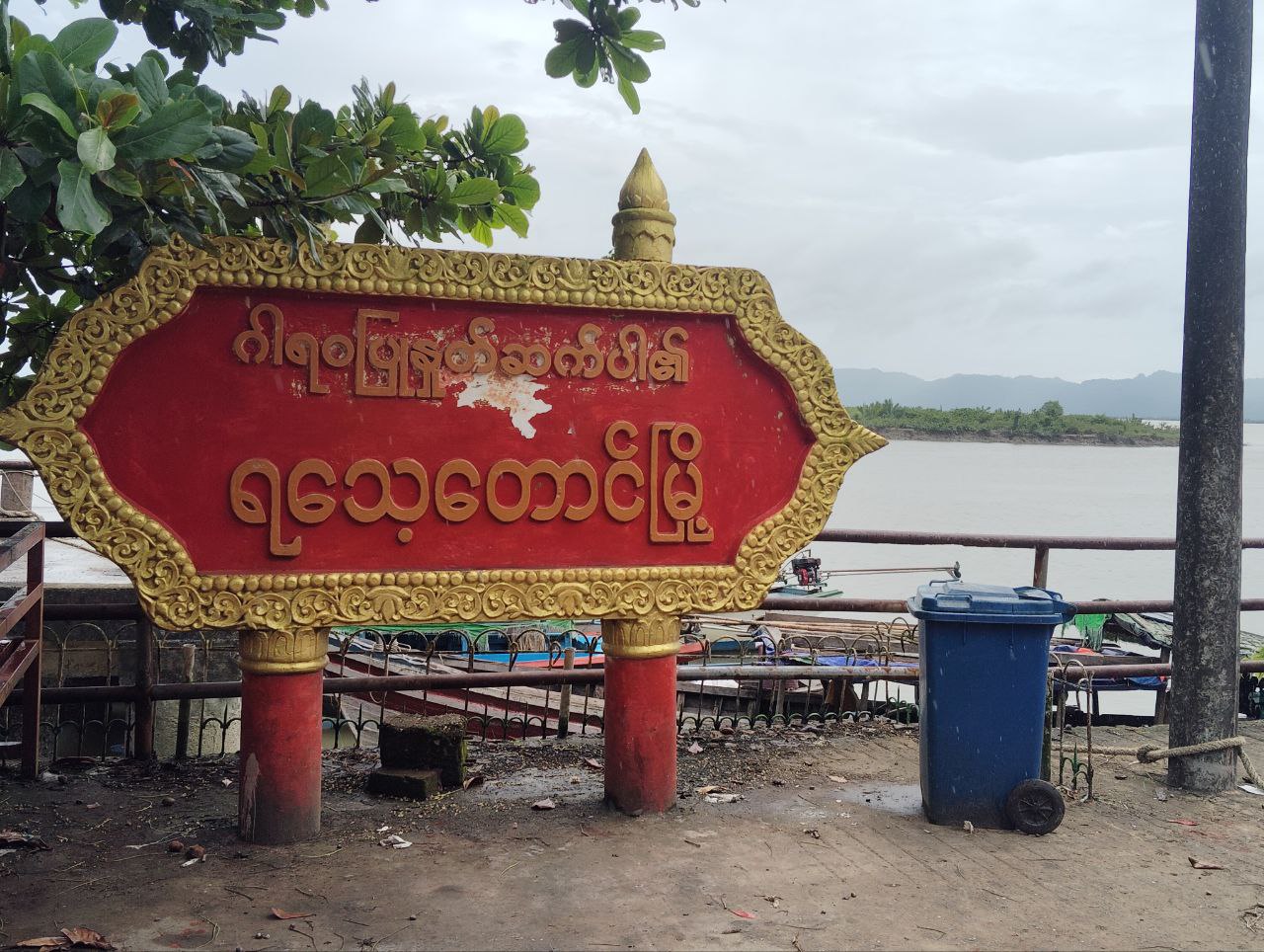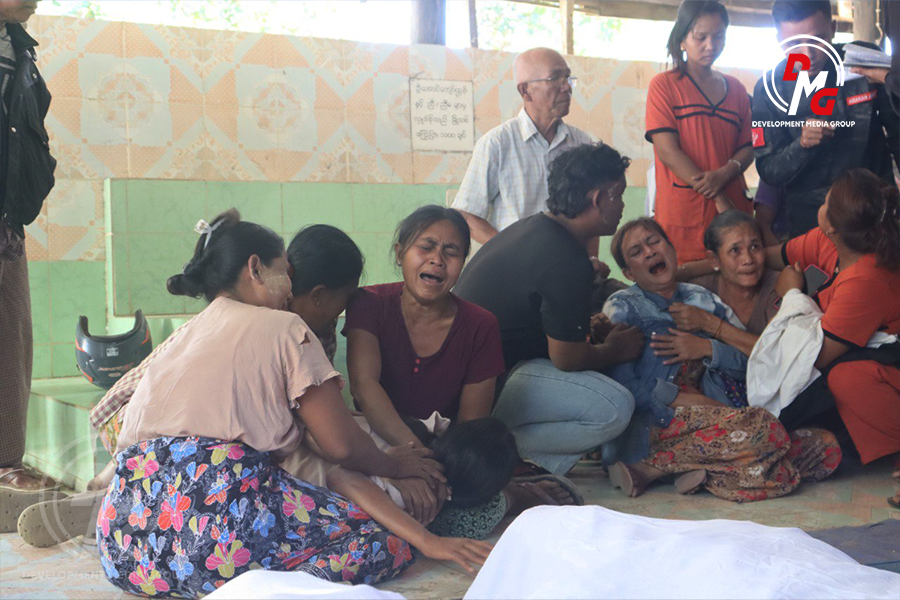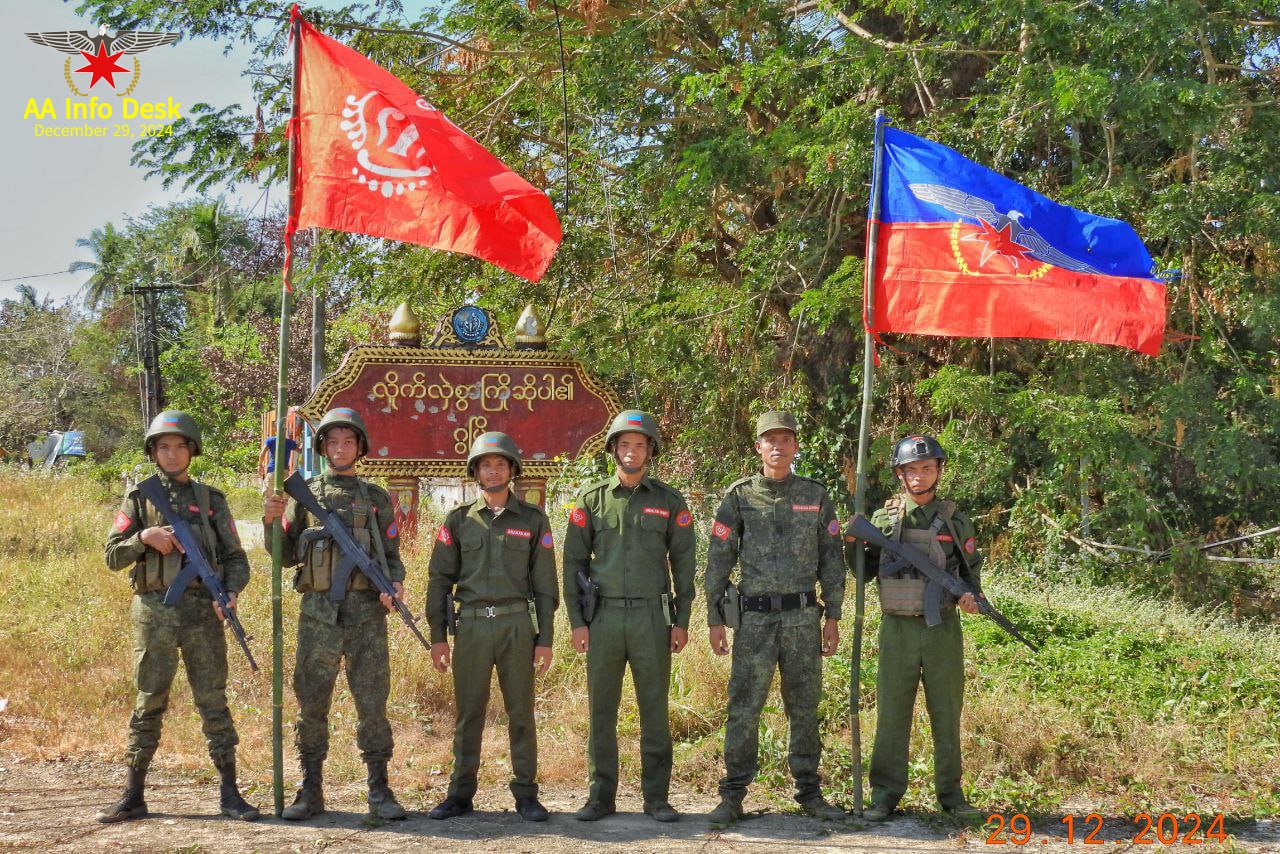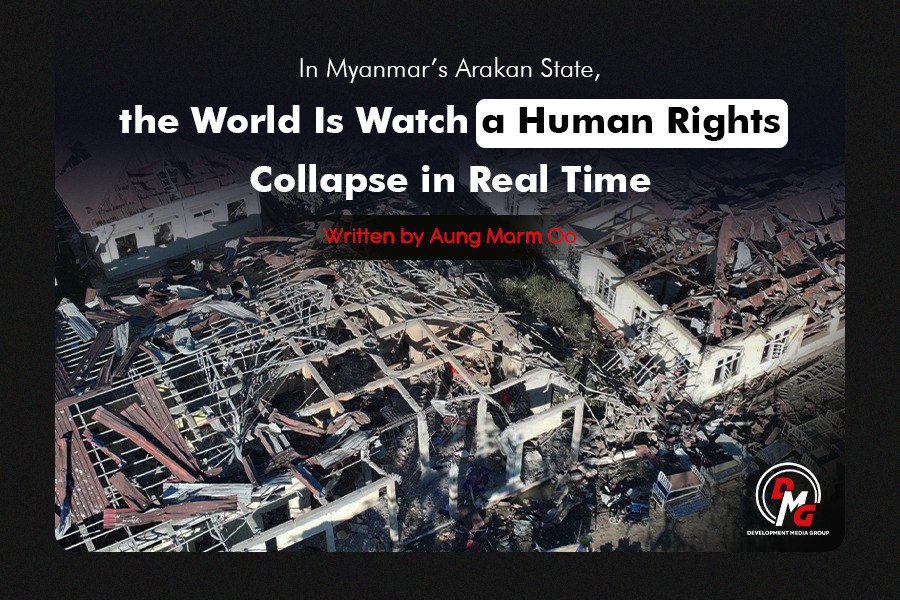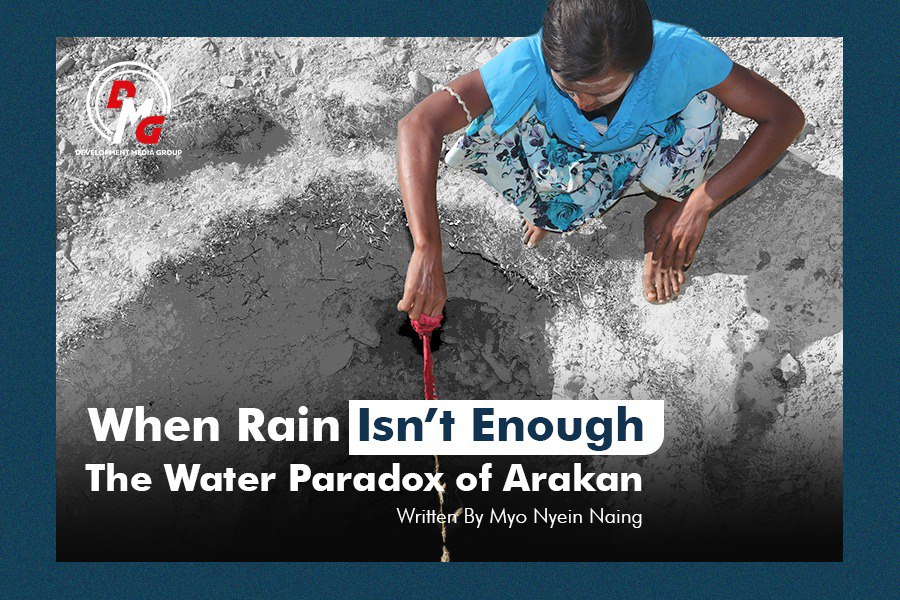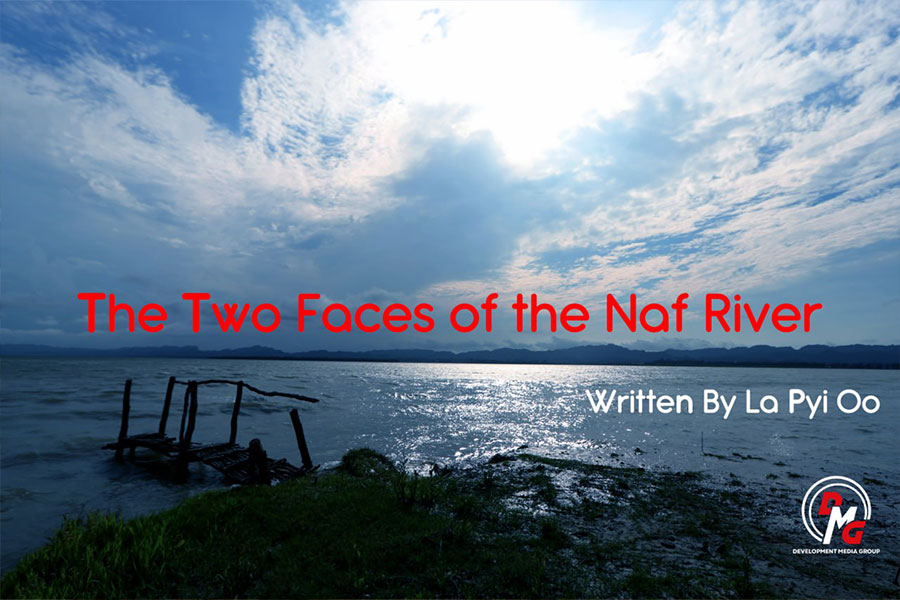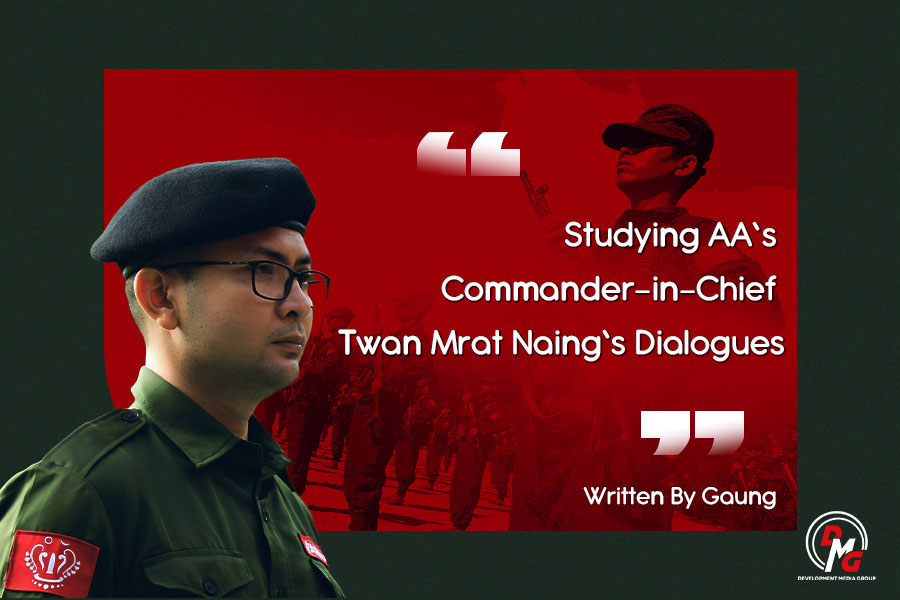- Junta unable to hold elections in dozens of wards and village-tracts in Sittwe, Kyaukphyu
- Fighting escalates between Myanmar military, Arakan Army in Ayeyarwady Region
- Regime steps up civilian arrests in Sittwe
- ULA safeguards Mrauk-U's ancient heritage
- Arakan on the Edge: What the DMG Landmine Impact Report Reveals About Myanmar's Deepening Humanitarian Crisis
Despite heightened tensions, observers say return to large-scale Arakan conflict is unlikely
Despite rising military tensions in Arakan State, Myanmar’s military regime may not risk a return to full-scale war in Arakan State, according to political observers.
25 Jul 2022
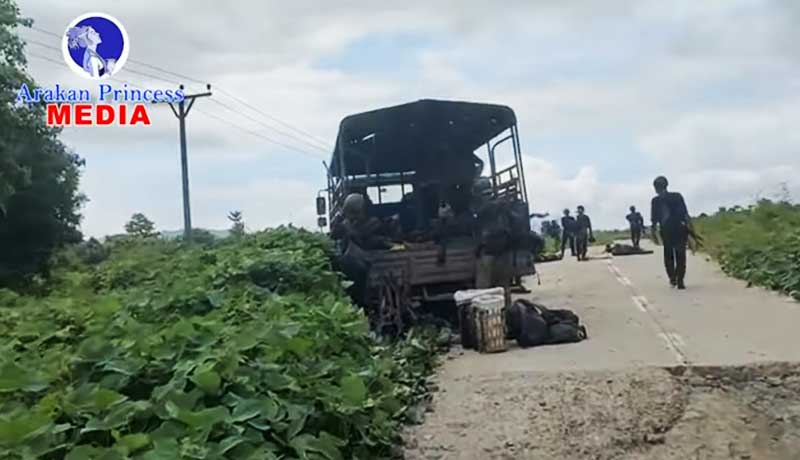
DMG Newsroom
25 July 2022, Sittwe
Despite rising military tensions in Arakan State, Myanmar’s military regime may not risk a return to full-scale war in Arakan State, according to political observers.
The regime is stretched too thin to take on the Arakan Army (AA) in Arakan State, fighting resistance forces and ethnic armed organisations in Kayin, Kayah, Kachin and Chin states as well as in Sagaing and Magwe regions, said U Ye Htun, a political analyst and former Lower House lawmaker for Shan State’s Hsipaw Township.
“It is very unlikely that the State Administration Council [the regime’s governing body] will open new fronts in Rakhine, considering that they are already struggling in existing theatres. They won’t want to fight a war on new fronts. It will depend on the SAC whether fierce fighting will break out again in Rakhine,” he said.
The AA took advantage of the lull in the fighting and consolidated its control of large parts of Arakan State. It has strengthened its administrative grip — complete with a judicial system and police force separate from the junta’s own — over the past year as the Myanmar military has been preoccupied with a burgeoning armed uprising against its 2021 coup across much of the country.
Tensions have been running high in Arakan State in recent months, however, with the regime attempting to contain the AA’s influence and a handful of clashes breaking out between the two sides.
Further clashes may happen due to the escalating tensions, said former Lower House lawmaker U Aung Thaung Shwe of Arakan State’s Buthidaung Township.
“There are realistic prospects for more clashes. Despite calls for dialogue, the two sides have failed to negotiate, and this is the very reason renewed fighting can erupt in Arakan State,” said U Aung Thaung Shwe.
The two sides clashed in Maungdaw on July 18, during which 10 junta personnel were killed and 14 others were captured, according to the AA.
AA spokesman U Khaing Thukha said the attack was in retaliation for the junta airstrikes on an AA outpost near the Myanmar-Thai border on July 4, in which six AA fighters were killed.
Veteran Arakanese politician U Pe Than said large-scale fighting is unlikely in Arakan State despite the growing military tensions.
“As far as I can see, neither side wants to engage in fighting,” he said. “They have ceased fire for more than a year with a verbal agreement. The AA has the Arakanese people to consider. At the same time, the regime has to deploy its troops across the country, and it is too stretched. So, both sides are not ready, and clashes therefore may not escalate.”
Arakanese residents displaced by the fighting between late 2018 and November 2020 are nonetheless concerned about a return to conflict in Arakan State.
“We don’t want to go through any more fighting,” said U Kyaw Aye Tun, from a displacement camp opened at a religious hall in Rathedaung Township. “We have experienced serious troubles. It has been three years since we were forced to flee our homes, and we still can’t return. And I am concerned we will be displaced again.”
Myanmar military arrests of civilians on suspicion of having ties to the AA have recently become more common in Arakan State, and the regime has also imposed tightened security checks on travellers and residents at a variety of locations.
The AA has urged local people not to make unnecessary travel due to the junta’s arbitrary arrests of civilians.





